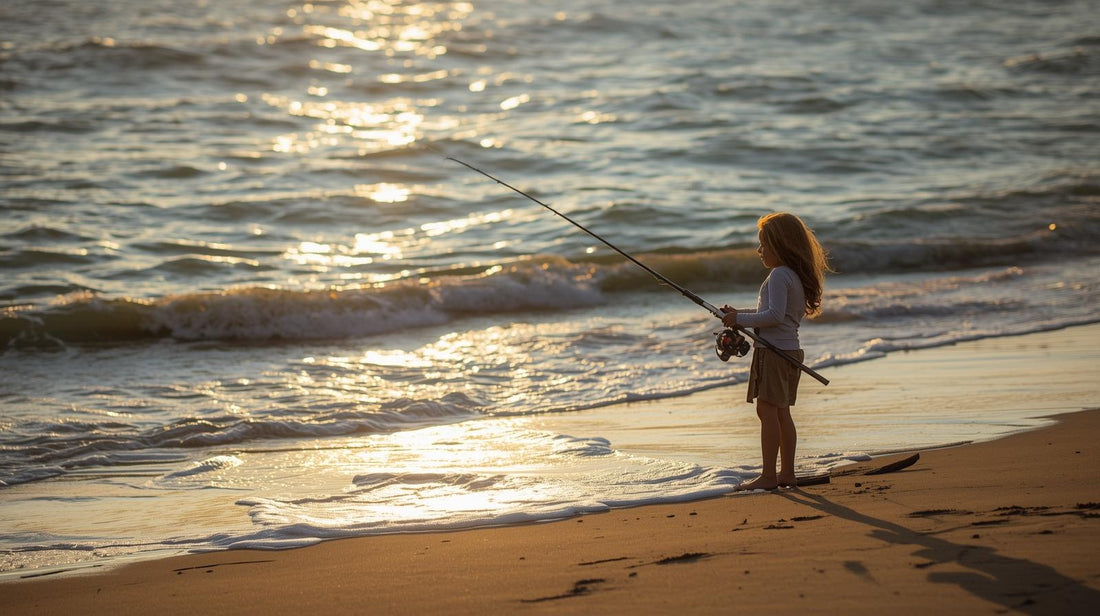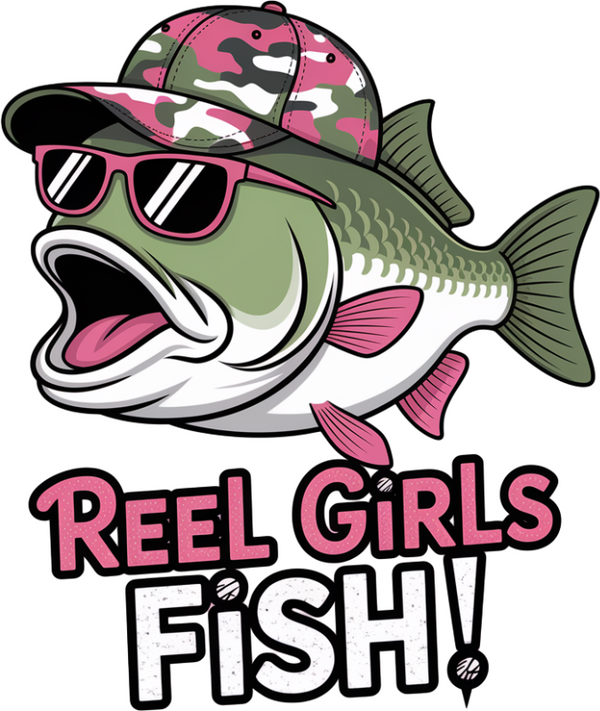
Empowering the Next Generation through Angling
Share
Empowering the Next Generation through Angling
When we imagine the tranquil scene of a family gathered at the water’s edge, lines cast and faces upturned to the sun, it may be easy to picture a father and son duo, or perhaps a group of enthusiastic boys eagerly waiting for their first catch. But fishing, in all its meditative patience and thrilling reward, is a pursuit that should be open and inviting to all—especially to young girls. Encouraging girls to take up fishing is not just about diversifying a pastime; it is about cultivating confidence, resilience, and a lifelong appreciation for nature.
Breaking Down Gender Stereotypes
For generations, fishing has been commonly depicted as a male-dominated hobby, often passed down from fathers to sons. This stereotype, though persistent, is not rooted in any innate difference between genders but rather in tradition and representation. When young girls are encouraged to learn casting, tying knots, and understanding the rhythms of water, they challenge these tired conventions.
More importantly, girls who fish become visible role models for others. Seeing a girl confidently bait a hook or reel in a catch sends a strong message: the outdoors belong to everyone. In a world where media and marketing often limit girls’ activities to the domestic or decorative, fishing stands as a powerful assertion of autonomy and agency.
Building Confidence and Self-Reliance
Fishing requires patience, critical thinking, and problem-solving skills. Each outing is filled with small decisions: which lure to use, where to cast, how to respond to changing conditions. Success is often hard-earned and can come after many attempts and failures. In this environment, girls learn to trust their judgment, adapt strategies, and persevere through setbacks.
When a girl reels in her first fish—regardless of its size—the sense of achievement is unmistakable. It validates her skills and efforts. Over time, these experiences build a quiet confidence and an ability to handle challenges outside of fishing as well. The lessons of persistence and adaptability transcend the riverbank, shaping her response to academic, social, and personal hurdles.
Connecting with Nature and Conservation
Our modern lives are increasingly detached from the natural world, but fishing can serve as a powerful bridge. Teaching young girls to fish is more than teaching them to catch—it is teaching them to observe, to respect, and to care. They learn the habits of fish, the importance of habitat preservation, and the interconnectedness of ecosystems.
Girls who fish often become passionate advocates for environmental stewardship. They see first hand the impacts of pollution, overfishing, and habitat destruction. With girls’ voices in the conservation conversation, fresh perspectives emerge, and entire communities benefit from their leadership. Encouraging young girls to take up fishing is, in many ways, encouraging them to be caretakers of the planet.
Fostering Community and Lifelong Bonds
Fishing is rarely a solitary activity, especially for beginners. It is an opportunity for mentorship, bonding, and the sharing of knowledge across generations. When girls are welcomed into angling communities—whether by family, friends, or local clubs—they become part of a tradition that values sharing and storytelling.
These connections can be deeply meaningful. A day on the water spent with a parent, sibling, or friend can spark conversations that linger long after the lines are reeled in. For girls, these experiences counteract the isolation that can sometimes accompany adolescence, creating a sense of belonging and support. The camaraderie of fishing can last a lifetime, with skills and stories passed from one generation to the next.
Expanding Horizons and Career Opportunities
While many approach fishing as a recreational activity, for some it can open doors to careers in marine biology, environmental science, outdoor education, or wildlife management. Early exposure and encouragement may plant the seeds for future jobs that are both fulfilling and impactful.
Girls who grow up fishing are more likely to see themselves in these roles, to pursue studies and careers that keep them connected to the natural world. This is particularly important in fields where women are still underrepresented. By supporting girls in fishing, we support a more equitable and diverse workforce in science and conservation.
Practical Steps to Encourage Young Girls
1. Start with an Invitation
Sometimes all it takes is a simple invitation. Invite girls to join for a day of fishing, regardless of their prior experience. Let them know their curiosity and presence are valued.
2. Provide the Right Gear
Ensure that girls have access to equipment that fits their size and skill level. This small gesture can make a big difference in comfort and confidence.
3. Celebrate Curiosity and Success
Whether it’s the first cast or the first catch, every achievement matters. Celebrate the process as much as the outcome, and encourage questions and exploration.
4. Connect with Female Role Models
Introduce girls to women who fish, whether in person or through books, articles, and videos. Representation matters and seeing women in the angling world is powerful.
5. Join Clubs or Groups
Look for local fishing groups or clubs that welcome girls and families. Shared experiences build community and allow for ongoing learning.
6. Emphasise Conservation
Teach catch-and-release techniques, discuss local species and regulations, and involve girls in habitat clean-up days. Nurture the ethic of stewardship alongside the joy of fishing.
The Ripple Effects of Inclusion
Encouraging young girls to fish is about so much more than rods and reels. It is an investment in their confidence, their connection to nature, and the diversity of voices shaping our outdoor traditions. When we break down barriers and open up the riverbank to all, we foster a society where every child feels empowered to explore, learn, and lead.
Let’s cast new lines into the future—lines that are strong enough to pull not just fish, but possibilities and dreams, into the hands of girls ready to change the world.
